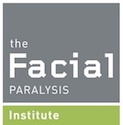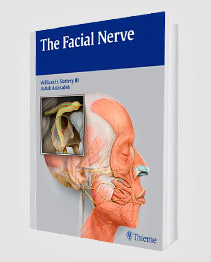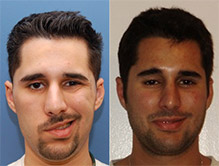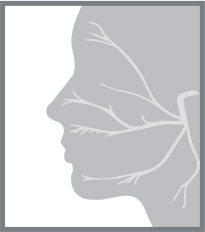What To Do if You Wake Up With Facial Paralysis
Waking up with one side of the face drooping and numb can be a terrifying experience. Whether the affected person has just awoken from surgery or a normal night of sleep, it is important to go to a doctor for testing. That way, the doctor can evaluate what may be causing the patient’s facial weakness. There are several facial paralysis causes, some of which are more serious than others, but only a medical professional can distinguish the cause and prescribe treatment.
I Can’t Open My Mouth All the Way — What Should I Do Next?
If someone wakes up with facial paralysis and is still at the hospital after surgery or is recovering from an injury at the hospital, they should alert their care team as soon as possible that they cannot move their face. This also applies to anyone who suddenly realizes they cannot open their mouth or feel that they have reduced muscle control on one side of the face.
Those who are at home when facial paralysis symptoms suddenly appear should seek emergency medical attention right away. One of the most dangerous facial paralysis causes is a stroke. During a stroke event, brain damage can cause a break in communication between the brain and the seventh cranial nerve, also called the facial nerve, which controls the movements of the face. One of the other most common causes of facial paralysis, Bell’s palsy, is typically due to swelling or damage to the facial nerve.
While drooping of the face is common in both stroke- and Bell’s palsy-induced paralysis, most stroke cases do not cause:
- Paralysis in the forehead
- Ear and/or jaw pain
- Changes in taste perception
Bell’s palsy can often cause these distinct symptoms. A stroke, on the other hand, is often accompanied by weakness in the legs or arms, as well as affected vision and speech. Bell’s palsy does not tend to cause these issues.
Regardless of which symptoms an affected person may be experiencing, however, seeking out professional medical attention is key to avoiding dangerous complications.
Once at the emergency room, a physician can give the patient a comprehensive physical examination to pinpoint the problem. The exams will focus on the neurological, ear, head, and neck region. An MRI and/or CT scan may also be necessary to help figure out the reason for the paralysis right away. Patients should also be sure to alert their medical team about symptoms such as ear and jaw pain, changes in taste perception, and weakness in other parts of the body. This information can help the team distinguish between a stroke and Bell’s palsy, or other facial paralysis causes.
Can Partial Facial Paralysis Occur Due to COVID-19?
It is unclear if a coronavirus (COVID-19) infection is one of the facial paralysis causes, and it may be years before researchers determine whether it can cause partial facial paralysis or facial weakness. Research indicates that patients can experience Bell’s palsy symptoms in conjunction with COVID-19. However, reports of COVID-19 and Bell’s palsy occurring at the same time are rare.
In addition, there may be a link between COVID-19 vaccinations and Bell’s palsy symptoms. There have been instances of Bell’s palsy reported in U.S. Food and Drug Administration (FDA) reviews of COVID-19 vaccines.
Research into the link between COVID-19 and facial paralysis is ongoing. Those who believe they are dealing with a COVID-19 infection should get tested immediately, regardless of whether they experience facial paralysis symptoms. Those who experience partial facial paralysis or facial weakness after a COVID-19 vaccination should seek out medical assistance. A doctor can then perform testing to determine the underlying cause of a patient’s facial paralysis symptoms.
Why Does Facial Paralysis Occur?
People can experience partial facial paralysis or facial weakness due to a viral infection, injury, stroke, a growing tumor, and other potentially unexplainable reasons. In the majority of cases, weakness and paralysis in the face are caused by damage to the facial nerve or brain damage in the part of the brain that controls the seventh cranial nerve. With proper testing, a doctor can find out why a patient’s facial paralysis symptoms are occurring and treat them accordingly.
How Is Facial Paralysis Treated?
If no specific cause is discovered for facial paralysis symptoms, a patient may be diagnosed with Bell’s palsy, which is a diagnosis of exclusion. This means that all other possible causes for paralysis have been ruled out, leaving Bell’s palsy as the reason for the condition. At this point, the patient may receive antiviral and steroid medications to treat their symptoms. These medications can act as facial paralysis treatments that help the swelling in the facial nerve go down, resulting in a higher chance of a full recovery.
If anyone suggests getting electric stimulation therapy for facial paralysis, it’s best to avoid this therapy. Electric stimulation therapy can inadvertently hamper a patient’s ability to regain full facial movement.
Patients who deal with facial paralysis symptoms that persist for eight months or longer should contact The Facial Paralysis Institute. They can schedule an initial consultation with facial nerve expert Dr. Babak Azizzadeh, who can evaluate a patient and offer a personalized facial paralysis treatment recommendation.
Each treatment is customized to a patient and their facial paralysis symptoms. Dr. Azizzadeh may recommend a wait-and-see approach in the hopes that a patient’s symptoms will disappear on their own. Or, he may recommend Botox treatments, meeting with a physical therapist who specializes in facial reanimation, and/or surgery.
Schedule a Facial Paralysis Treatment Consultation with Dr. Azizzadeh
Dr. Azizzadeh is available to meet with patients and evaluate their facial paralysis symptoms once serious problems, such as a stroke, have been ruled out, or when patients are dealing with the aftermath of a stroke. To schedule a consultation with Dr. Azizzadeh, please contact us online or call us today at (310) 872-1620.
Sources:
https://www.ncbi.nlm.nih.gov/pmc/articles/PMC6899254/
https://medlineplus.gov/ency/article/003028.htm
Request your consultation with Dr. Azizzadeh today
Call us at (310) 657-2203 to schedule an appointment.
Schedule a Consultation





